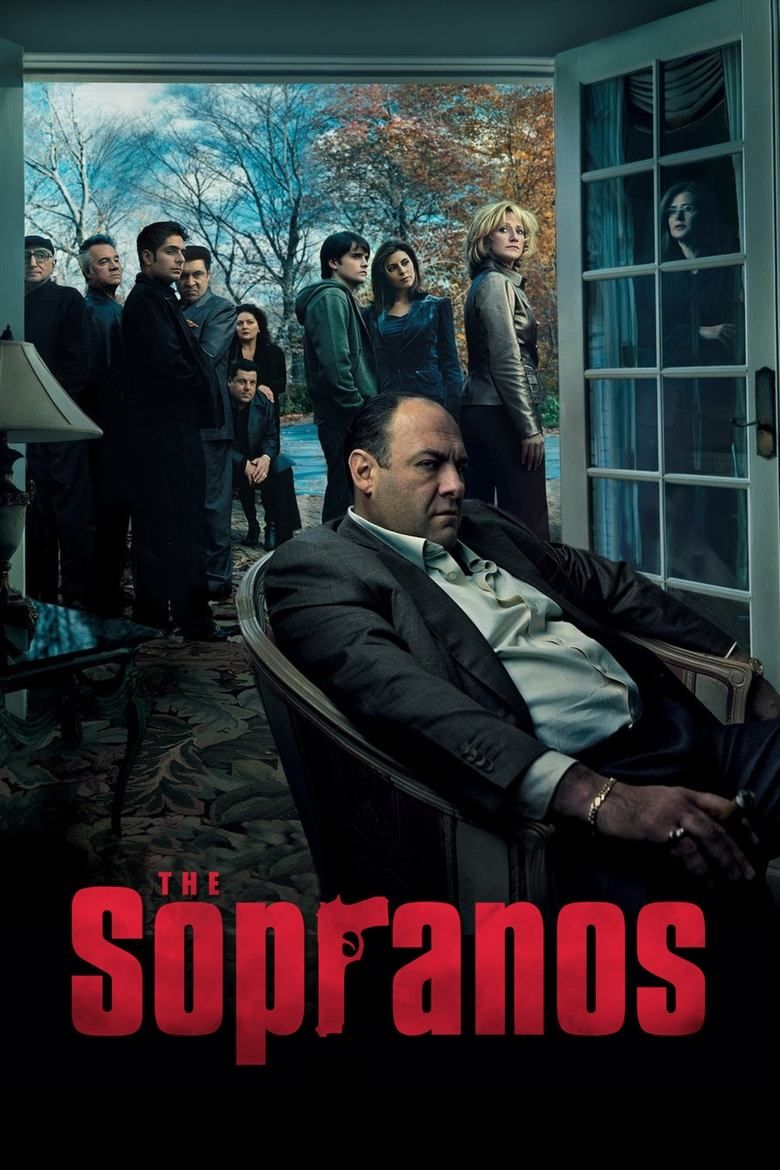With a classic season 1 episode, The Sopranos singlehandedly paved the way for the modern TV trend of gritty antiheroes. The Sopranos was one of the early trailblazers that made HBO the home of prestige television. Its cinematic visuals, three-dimensional characters, and uncompromising subject matter paved the way for The Wire, Game of Thrones, and True Detective.
From its very first episode, The Sopranos hooked viewers. It brought a sense of well-researched verisimilitude to the mafia, which was rarely seen in the gangster genre, and it had a quirky sense of humor that made it stand out. But, as with most TV shows, it took a few episodes to find its footing and establish its idiosyncratic voice.
The Sopranos delivered many great episodes throughout its run; it didn’t have a single bad episode, and a lot of them hold up as masterpieces of the medium. But the show might not have become as successful as it did, or broken as much ground as it did, if it hadn’t been for a crucial first-season episode that changed everything.
“College” Turned Tony Soprano Into A Lead Character Like No Other On TV
Tony Killed A Rat While Touring Colleges With His Daughter
In The Sopranos season 1, episode 5, “College,” Tony Soprano hits the road with his teenage daughter Meadow to tour three colleges in Maine that Meadow is thinking of applying to. During the drive, Meadow confronts her dad about the mysterious source of his income, but the most she gets out of him is admitting that some of his earnings come from gambling.
While they’re on the road, Tony thinks he spots an old associate, Fabian “Febby” Petrulio, who turned state’s evidence and went into witness protection. After confirming that it is, indeed, Febby, Tony resolves to whack him while continuing the college tour with Meadow. After dropping her off for an interview, Tony finds Febby at his office and garrotes him.

Related
The 20 Best TV Episodes Of All Time (Number 1 Is Undisputed)
From Breaking Bad’s “Ozymandias” to Seinfeld’s “The Contest” to Mad Men’s “The Suitcase,” these are the greatest episodes of television ever produced.
This episode made Tony a kind of protagonist that had never been seen on television before. We’d seen plenty of dads on TV before, but none that would drop their daughter off at a college interview, murder someone, and then pick her up like nothing had happened. This double life made Tony a fascinating character that audiences wanted to follow.
HBO Was Worried That The Sopranos Would Lose Viewers If Tony Killed Someone
David Chase Argued They’d Lose Viewers If Tony Didn’t Kill Someone
For a piece in The Guardian, Talking Sopranos hosts Michael Imperioli (a.k.a. Christopher Moltisanti) and Steve Schirripa (a.k.a. Bobby Baccalieri) named their favorite episodes of The Sopranos and explained the stories behind them. The first episode that came up was “College,” which Schirripa described as the episode that “put the show on the map” in its premiere season.
According to Schirripa, HBO was worried that they would “lose the audience” if their protagonist murdered somebody. But the show’s creator, David Chase, countered that they would lose viewers if Tony didn’t kill Febby: “This is a bad guy and that’s what he does.”
It would’ve felt incredibly disingenuous to have a mob boss with no blood on his hands.
If Chase had taken HBO’s note, then Tony wouldn’t have killed anyone throughout The Sopranos’ run. And Chase is probably right that it would’ve lost viewers and cut the show’s run short, because it would’ve felt incredibly disingenuous to have a mob boss with no blood on his hands.
Thankfully, Chase managed to convince the network to let him have Tony kill, because that moment ended up making the show. If Tony hadn’t killed Febby in season 1, then there might not have been a season 2.
Tony Soprano Would Only Become More Complex After “College”
Tony Is A Man Of Many Dimensions
Seeing Tony commit a cold-blooded act of murder in “College” added some complexity to the character. We’d seen that he was a loving husband and father who really cared about his family, but now we’d seen that he was also a killer who wouldn’t think twice about taking a human life if it was good for business.
There was clearly a lot of depth to this character — he had both good and bad qualities — and he would only get more complex as the series went on. He loved Carmela deeply, but he also had frequent affairs. He would kill human beings without remorse, but he also had a soft spot for Ralphie’s horse Pie-O-My.
Before Tony came along, network executives assumed that a show’s lead character had to be likable for audiences to want to keep tuning in every week to catch up with them. But The Sopranos proved that they don’t have to be likable; they just have to be interesting. Tony wasn’t a good person, but he was nothing if not interesting.
The Sopranos Paved The Way For Other Morally Gray Main Characters
Without Tony Soprano, There Would Be No Vic Mackey Or Walter White
The success of The Sopranos paved the way for more gritty, violent TV dramas about morally questionable antiheroes. It emboldened FX to take a chance on Shawn Ryan’s police procedural about corrupt cops, The Shield. It emboldened AMC to take a chance on shows about a philandering ad executive (Mad Men) and a meth-cooking high school teacher (Breaking Bad).
The Sopranos is streaming on HBO Max.
Without Tony, we wouldn’t have Vic Mackey or Don Draper or Walter White or Omar Little. If Tony hadn’t strangled that informant in “College” and gotten millions of viewers hooked on The Sopranos, TV audiences might’ve never figured out how compelling they find antiheroes, and networks wouldn’t have been able to capitalize on that demand.
Source: The Guardian

The Sopranos
- Release Date
-
1999 – 2007
- Network
-
HBO
- Showrunner
-
David Chase
-

James Gandolfini
Tony Soprano
-

Source link



















Add Comment